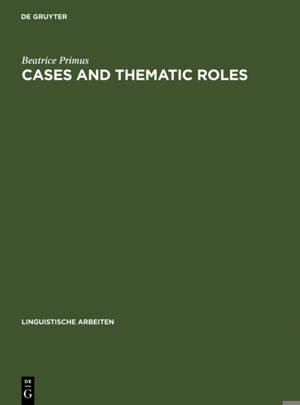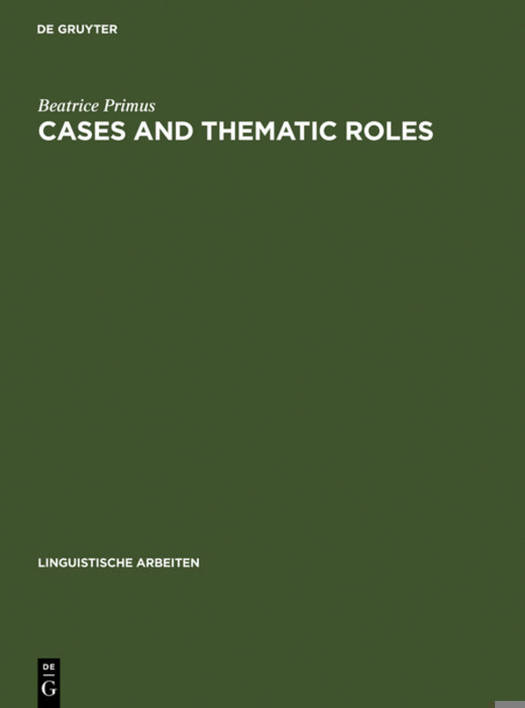
Bedankt voor het vertrouwen het afgelopen jaar! Om jou te bedanken bieden we GRATIS verzending (in België) aan op alles gedurende de hele maand januari.
- Afhalen na 1 uur in een winkel met voorraad
- In januari gratis thuislevering in België
- Ruim aanbod met 7 miljoen producten
Bedankt voor het vertrouwen het afgelopen jaar! Om jou te bedanken bieden we GRATIS verzending (in België) aan op alles gedurende de hele maand januari.
- Afhalen na 1 uur in een winkel met voorraad
- In januari gratis thuislevering in België
- Ruim aanbod met 7 miljoen producten
Zoeken
Omschrijving
This book is concerned with the mapping of thematic roles, such as agent and patient, onto syntactic cases, such as nominative or ergative, or onto structural relations. It shows that cases and structural relations code different aspects of thematic structure. The thematic determination of the structural relation of an argument is confined to its position in the thematic structure of the predicate. Case mapping is determined by the number of basic thematic concepts involved in this structure. This fact and other facts presented in the book presuppose an approach to thematic roles that decomposes them into more basic concepts involving volitionality, causation, activity, sentience, possession, etc., and motivate the hypothesis that syntactic cases cannot be derived from structural relations in universal grammar. The phenomena pertaining to relational typology that classifies languages into ergative, accusative and active languages are shown to be restricted to case mapping. The specific thematic determination of case mapping and the hierarchical organization of case systems explain not only the existence of these types of mapping, but also the fact that ergative and active phenomena are typically case-based. The book provides a global cross-linguistic perspective, but German data recurrently serve as an illustration of the main theoretical assumptions.
Specificaties
Betrokkenen
- Auteur(s):
- Uitgeverij:
Inhoud
- Aantal bladzijden:
- 296
- Taal:
- Engels
- Reeks:
- Reeksnummer:
- nr. 393
Eigenschappen
- Productcode (EAN):
- 9783484303935
- Verschijningsdatum:
- 29/03/1999
- Uitvoering:
- Hardcover
- Formaat:
- Genaaid
- Afmetingen:
- 216 mm x 279 mm
- Gewicht:
- 979 g

Alleen bij Standaard Boekhandel
+ 222 punten op je klantenkaart van Standaard Boekhandel
Beoordelingen
We publiceren alleen reviews die voldoen aan de voorwaarden voor reviews. Bekijk onze voorwaarden voor reviews.









